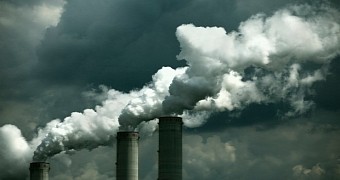It was towards the end of 2013 that the World Health Organization officially classified air pollution as carcinogenic to humans, putting it in the same category as other harmful concoctions such as tobacco smoke and radioactive chemicals.
“The air we breathe has become polluted with a mixture of cancer-causing substances. We now know that outdoor air pollution is not only a major risk to health in general, but also a leading environmental cause of cancer deaths,” researcher Kurt Straif said in a statement at the time.
Now, a new study published in the science journal Nature shows that, each year, air pollution causes around 3.3 million premature deaths. What's more, specialists warn that, under a business-as-usual scenario, this figure could increase to an astounding 6.6 million by the year 2050.
While it remains true that, as pointed out by experts with the World Health Organization, air pollution is a leading cause of cancer, around 75% of the premature deaths referenced in the Nature study are the result of strokes and heart attacks.
This is because, apart from our lungs, harmful compounds floating about in the air we breathe take their toll of our cardiovascular system. Studies carried out over the years have also linked air pollution to congenital defects, asthma and, as odd as this might sound, even weight gain.
Different countries, different threats
By the looks of it, around 1.4 million of the total number of premature deaths linked to air pollution documented on a global scale annually happen in China. India and Pakistan follow with 645,000 and 110,000, respectively. In the US, the figure revolves around 55,000.
Interestingly, it appears that different countries have different air pollution trouble. Thus, in China and in India, it's chiefly emissions from heating and cooking that cause the most deaths. In much of the US and several other countries, power generation and traffic are the main culprits.
In Europe, Russia, the eastern US and east Asia, on the other hand, emissions resulting from unsustainable agricultural practices cause the most air pollution and so contribute the most to the overall number of premature deaths linked to harmful airborne compounds, specialists detail.
That's not to say some forms of air pollution are confined to only a handful of countries. Dangerous emissions from multiple sources are scattered all across the globe. It's just that, depending on every country's usual practices, some compounds are present in higher concentrations in certain regions.

 14 DAY TRIAL //
14 DAY TRIAL //